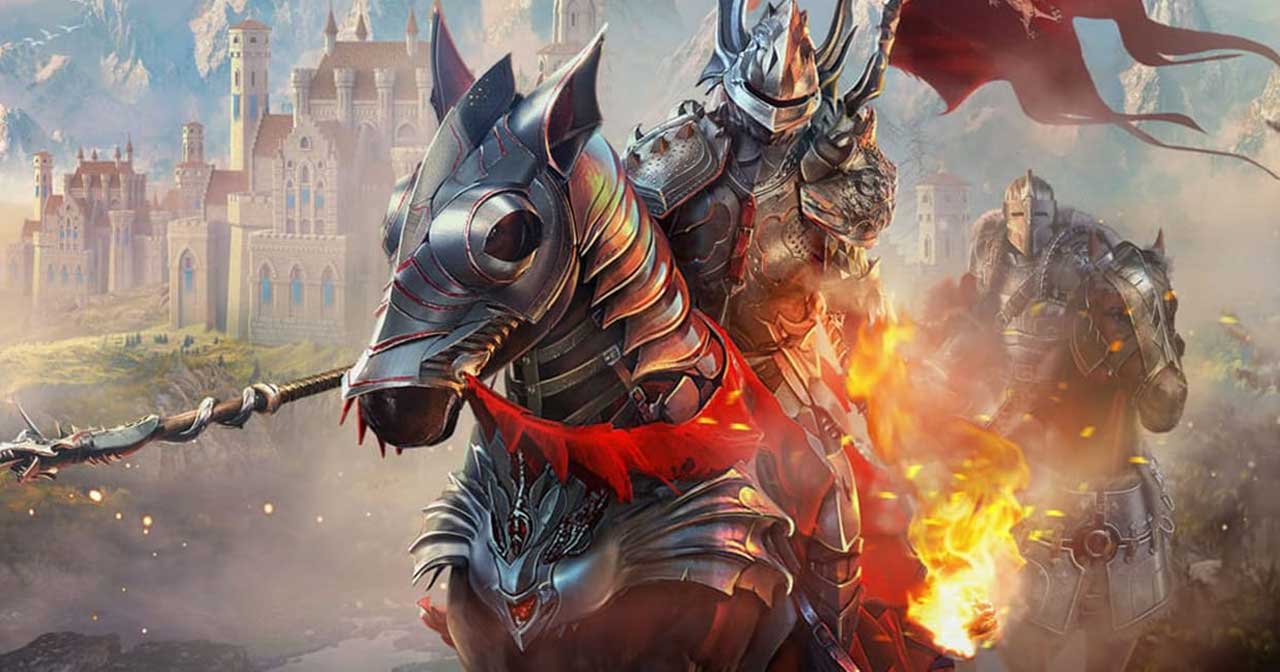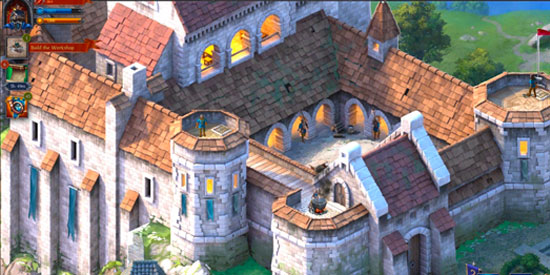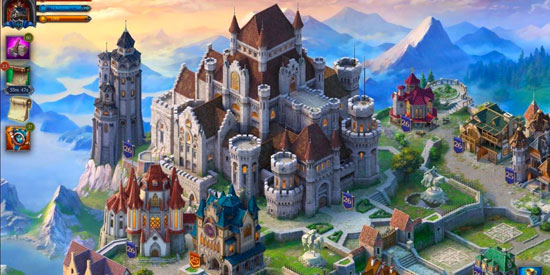
Throne: Clans of War
| Genre: Strategy Game |
| Rating: |
Throne Review: A Kingdom Worth Building, or Just Another Power Trip?
Throne isn’t just about building castles and flexing power. It’s a full-blown strategy game wrapped in lore, layered with ambition, and somehow still oddly personal. Let’s talk about it—crown to cobblestones.


First Impressions: That “Wait, This Is Kinda Cool” Moment
You know that split second when a game’s main menu loads and you immediately judge it based on the background music and loading screen art? Throne nails that moment. The music’s grand but not overdone—think cinematic fantasy, not corny epic—and the UI’s clean without being boring. Right from the start, it feels like the game knows what it’s doing.
Once you're in, the opening scene throws you into the fire—not literally, but the kingdom's in shambles, and guess who's been “chosen” to fix it? Yeah, you. No pressure.
City Building With a Side of Micromanagement
Let’s be real: most strategy games live or die by how fun (or frustrating) their building mechanics are. Throne strikes a decent balance. It’s complex enough to keep your brain engaged, but not so overwhelming that you’re rage-quitting over where to put a lumber mill.
You’re managing everything from farms to barracks, research labs to artisan markets. And weirdly? It’s satisfying. Watching your city grow from a sad patch of dirt into a bustling kingdom hits the same part of the brain that gets excited about crossing items off a to-do list.
There’s even a bit of spatial strategy—like how close you place buildings to boost productivity, or how you lay out roads to speed up resource collection. It’s not SimCity levels of planning, but it scratches that organizational itch.
Combat: Brains Over Brawn (Mostly)
Alright, let’s talk war. If you’re picturing mindless unit spamming and praying for victory—nah. Throne wants you to think. Troop types, terrain bonuses, unit placement, and—this is important—timing, all play a role.
Battles aren’t real-time (which some might see as a downside), but that actually gives you a chance to strategize without the panic of click-fests. It’s more chess than StarCraft.
You’ve got archers, cavalry, foot soldiers, siege engines... the works. The fun part? You can customize your army’s formation before launching an attack. It’s like laying out a battle plan with little army dudes in your head. And when the dust settles and you see your strategy worked? That’s a high-five-yourself moment.
Heroes, Not Just Numbers in Fancy Armor
Most games in this genre treat heroes like stat-stuffed Barbie dolls. Not here. Throne gives its heroes personality—both in how they look and how they fight. Some are stoic and honorable; others are sneaky rogues with hidden agendas. And they’ve got backstories. Real ones. The kind that make you curious instead of reaching for the “skip” button.
Recruiting and upgrading heroes takes time (and yeah, sometimes patience), but it’s worth it. Each one brings unique abilities to battle—think area damage, buffs, or enemy debuffs—and they can turn the tide in close fights.
Plus, there’s gear. Lots of it. From enchanted swords to mystical relics, you’ll spend a fair amount of time crafting and optimizing your hero loadouts. Kind of like fantasy football, but with swords instead of touchdowns.
The World Map: Big, Busy, and Brutal
Zooming out from your city reveals the world map—and it’s massive. We're talking sprawling plains, snowy peaks, haunted ruins, enemy strongholds, and scattered resources waiting to be claimed or fought over. It’s not just for show, either.
The map is where a lot of the political drama unfolds. You’ll scout, invade, defend, ally, betray—it’s like Game of Thrones with slightly fewer beheadings.
One thing to note: it gets competitive fast. If you're more of a solo player, expect to butt heads with alliances eventually. Some regions are basically no-go zones unless you’re backed by a solid team. But hey, that adds spice, right?
Alliance Life: The Good, The Bad, and The Drama
Ah yes, alliances. Sometimes the best part of a strategy game. Sometimes a hot mess. In Throne, they’re both.
Joining an alliance opens doors—shared resources, group battles, coordinated attacks, and political influence. Some alliances even have hierarchies, roles, and actual governance. (There’s always that one player who takes it a little too seriously. You’ll know when you meet them.)
But alliance chat? Pure entertainment. You’ll see everything from brilliant strategies to absolute nonsense. And when coordinated attacks go well, there’s this collective cheer feeling, even if you’re just sitting at your desk in pajamas.
Still, managing personalities in group dynamics is part of the game. Some folks are helpful. Others are, well, less so. It’s like office politics—but with swords and dragons.
Events and Quests: Something's Always Going On
Ever log into a game and feel like nothing new is happening? Throne avoids that. There's always something running—seasonal events, daily missions, time-limited challenges, you name it.
Some events bring exclusive heroes or limited-time bonuses. Others just offer fun distractions from the main grind. And if you're the checklist type, completing daily objectives can feel incredibly satisfying.
They also rotate in mini story arcs, where decisions affect outcomes. It's a neat trick—makes the world feel a little more alive, like you're not just playing, you're shaping things.
Art Style: Somewhere Between Fairytale and Fire-Ready
Visually, Throne doesn’t try to reinvent the wheel, but what it does, it does well. Buildings are richly detailed, the world map is colorful without being cartoony, and the character design? Surprisingly expressive.
You can tell they spent time crafting a visual identity. There’s a slightly grim undertone beneath the fantasy shine—like, yeah, this place is magical, but also dangerous.
Animations are smooth, UI is intuitive, and nothing feels cluttered (thank goodness). And while the music loops eventually get old—don’t they always?—they fit the mood and atmosphere just fine.
Progression: Slow Burn or Fast Climb?
Here's the thing about Throne: it's a marathon, not a sprint. Progress takes time. But it's the kind of time where you're always nudging things forward—building, researching, battling, upgrading.
There's a rhythm to it. And once you're in that rhythm, it becomes part of your day. Check in over lunch. Set some builds. Plan tomorrow’s battle. It's oddly... routine, in the best way.
And while some players might crave quicker wins, there’s something genuinely rewarding about watching a plan come together days later.
A Few Speedbumps Worth Mentioning
No game’s perfect, right? A few things could use polish. For instance:
-
The early game tutorial can feel rushed—it throws a lot at you fast.
-
Alliance invitations come in hot and heavy; expect spam.
-
Some menus hide too much info, especially for new players.
Also, the pacing might feel slow for folks used to instant gratification. But if you're here for strategy and world-building, you'll likely settle in just fine.
Final Thoughts: Should You Crown Yourself?
Throne is not for the faint of heart or short of patience. But for players who love long-term strategy, character-driven conflict, and the thrill of outsmarting human opponents—it delivers.
It’s got ambition. It respects your brain. And it rewards consistency over chaos. You won’t always win. You will get betrayed. But somewhere between rebuilding your keep and rallying allies for one final push, you might just lose yourself in the world it builds.
And you know what? That’s the mark of a good game.